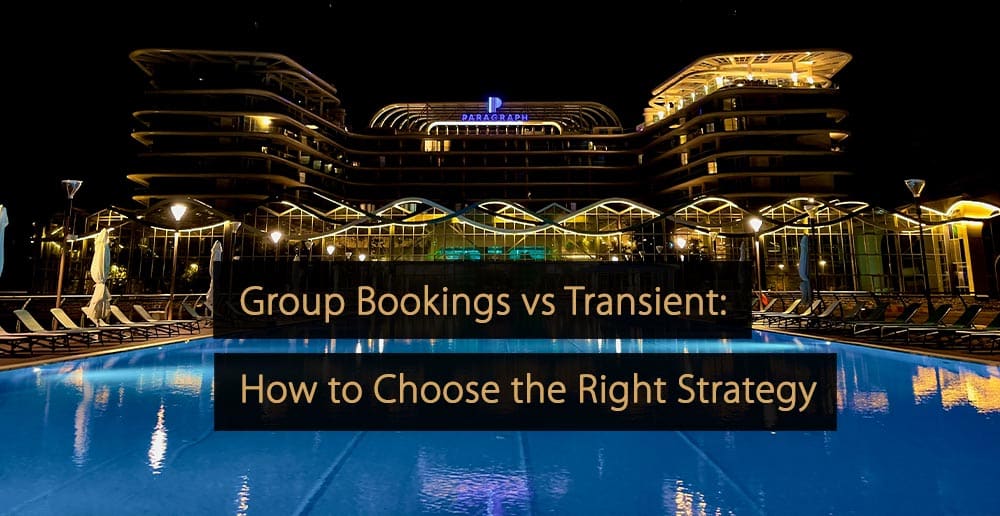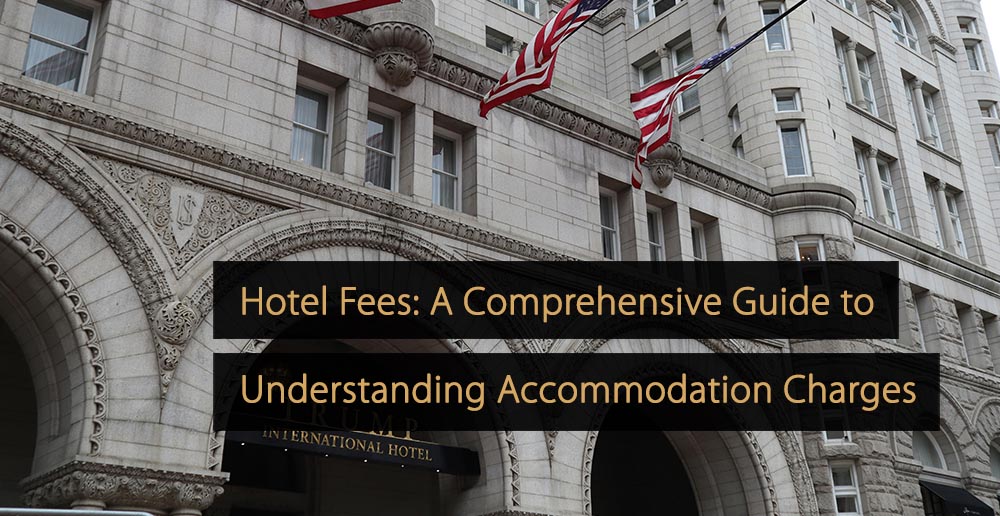Whether you want to construct a new hotel or purchase an existing one, you will need hotel financing to cover the costs. Thankfully, there are a variety of options to choose from. In this article, we will explore these different financing types and provide tips to boost your chances of success when acquiring funding.
Table of Contents:
- What Is the Hotel Industry?
- What Is Hotel Financing?
- Hotel Business Plan: The Crucial Step to Secure Hotel Financing
- 6 Types of Hotel Financing Strategies
- Tips For Getting Successful Hotel Financing
- Further Considerations When Starting a Hotel Business
- Hotel Ownership After Acquiring Hotel Financing
- Creating a Hotel Budget Plan to Secure Hotel Financing
What Is the Hotel Industry?
Before getting into the intricacies of hotel industry financing, it is worth covering the essentials, including a basic hotel meaning and a definition of the hotel industry. A hotel can be defined as a managed building that allows short-term, overnight stays in exchange for money. The hotel industry, meanwhile, is a broader term, because it encompasses all forms of temporary guest accommodation, such as B&Bs, inns, motels, and hostels. In the article “Hotel Industry: Everything You Need to Know About Hotels!” you can access a complete definition, along with a breakdown of accommodation types, strategies, technology trends, and much more.
What Is Hotel Financing?
Simply put, hotel financing refers to raising the money required to buy or start a hotel business and contend with the initial running costs. Financing can be secured to construct a new hotel or replace an existing one. This will often involve borrowing money, attracting investors, or acquiring grants. Several possible finance sources are available for individuals or groups looking to invest in a hotel. These options allow you to raise the money to complete the initial purchase or construction of your hotel, and the hotel can then be operated to make a profit and repay the borrowed money.
Hotel Business Plan: The Crucial Step to Secure Hotel Financing
To secure hotel financing and appeal to lenders or potential investors, you will need to develop a high-quality business plan. This is how you will sell the concept to financiers and convince them that your hotel will be a viable business that will generate a profit and allow you to repay any debts. Your business plan should include financial forecasting, an outline of your planned business structure, and an explanation of why your hotel is viable.
You should be able to explain how you will repay any debts and provide potential investors or financiers with details about what the hotel will offer and why it is needed. If you are taking over an existing hotel, you should outline financial results and explain how these can be improved. Conducting a SWOT analysis is essential, breaking down your business’s specific strengths, weaknesses, opportunities, and potential threats or the key challenges you will face.
Video: Top 10 tips on How to Write a Hotel Financing Business Plan
6 Types of Hotel Financing Strategies
In the sections below, you can learn about six types of financing that those who wish to be involved in the hotel management may be able to acquire, to find a hotel development or purchase.
Hotel Loans
Hotel loans are the most common hotel financing option. This is a versatile funding type because you may be able to acquire a business loan for purchasing an existing hotel, constructing a new hotel, expanding or upgrading an existing hotel, or converting an existing building into a hotel. Generally, the best source for a hotel loan is a bank, although it should be noted that the requirements for securing a loan can be quite stringent.
You will need to have a clear business plan, present your case for the loan, show that lending the money to you will be a low-risk investment for the bank, and demonstrate an ability to make repayments. Once the loan is approved, you pay it back with interest but retain full control over your hotel.
Self-Funding or Funding From Family/Friends
Regarding the amount of work needed to secure the funding, the easiest method of hotel financing would be either self-funding through your savings or securing financing from family or friends. Borrowing from family and friends is likely to require a lower standard of proof that your hotel will be successful. You may also be able to borrow the money with minimal interest to repay, or more generous repayment terms.
Self-funding may also be possible through remortgaging your home, releasing equity, or selling property or other investments. However, for most people, the required funding is simply not available upfront.
Family Offices
Family offices are quite a specific form of hotel financing, but they are also one of the growing hotel trends in funding. This approach is only relevant for extremely wealthy families with a net worth of millions. A family office is a private wealth management and investment management company.
The family office will function like any other wealth management company, with various staff members specializing in different areas. The company’s financial capital comes from the family’s wealth, and family offices may be a viable funding option for wealthy family members who wish to break into the hotel industry.
Crowdfunding
Crowdfunding is a form of hotel financing that involves sourcing funding from private individuals who contribute their money voluntarily. Most crowdfunding is handled through online crowdfunding platforms. The idea incentivizes people to contribute some of their money toward the project.
To secure funding this way, you must make a convincing case for why your hotel would benefit people. It is also common to reward the contributors who invest the most money. The rewards for major contributors could be anything from a small gift or a free night at the hotel to an all-inclusive holiday.
Individual Hotel Investors
A good alternative to the aforementioned hotel industry financing options is to try to attract interest from private hotel investors. These investors could be people taking their first steps into the hotel industry or those with significant experience investing in hotel operations.
It is essential to understand that private investors are all unique, and what appeals to one may not necessarily appeal to another. However, suppose multiple investors are going to be needed. In that case, it makes sense to try to create a hotel business plan with mass appeal, well-researched, and presents the hotel as a viable option for generating a profit.
Government Grants
Government grants are a relatively rare form of hotel financing, although they exist in some countries, and it is an option worth exploring. Generally, government grants are connected to wider attempts to boost a country’s economy or bolster a country’s tourism industry because hotels can potentially attract outside visitors.
You will need to ensure your business plan is robust and highly professional, and you may need to time your application for a government grant carefully. While this is not a form of hotel industry financing that you can expect to get, grants do not need to be paid back, so it is always worth exploring this option.
Tips For Getting Successful Hotel Financing
Now that you understand the main hotel financing sources, it is worth exploring ways to boost your chances of success. In the sections below, you can access some tips for accessing hotel financing.
Conduct a Risk Analysis
A risk analysis can be succinctly described as identifying future events or occurrences that could negatively impact your business or jeopardize your project. Essentially, it involves taking an honest look at the possible negative issues you may need to contend with and analyzing those risks. When applying for hotel financing, a financier will likely want to know that you have carefully considered risks.
You will need to demonstrate that you understand each risk and have analyzed its potential impact while also highlighting the steps that can be taken to mitigate risks or limit the negative consequences. Ultimately, your chances of securing a business loan, or attracting private investors, will depend significantly on the level of risk involved, so you need to devise a project that is as risk-free as possible.
Market Your Hotel Idea
In general, hotel marketing plays a crucial role in success or failure, but your marketing efforts must start early. When securing hotel financing, you should consider the entire process as a period where you sell what your hotel offers to potential investors or financiers. Try to be clear on what your hotel’s unique selling proposition (USP) is going to be and pinpoint what the target market is. For instance, will you be trying to appeal to families, couples, groups of friends, or a combination? Which age demographics will you focus on?
Will you be a budget hotel, a luxury hotel, or something else? There may be other ways you can sell the idea of your hotel too. Do you have a unique idea related to sustainability? Will your hotel provide benefits for local businesses and the community as a whole? Marketing encompasses all of your efforts to promote your hotel, and it can be especially valuable for attracting crowdfunding or private investors.
Clear and Attractive Pitch Deck
Next, your hotel financing hopes can be greatly boosted by creating a clear and attractive pitch deck. A pitch deck is a concise presentation that provides the most important components of your business plan. Your pitch deck needs to be optimized to spark interest or persuade decision-makers to act. While your business plan will likely focus more on facts, figures, projections, and forecasts, your pitch deck can be more centered around a narrative you are trying to convey.
After all, a story or a broad idea is much more likely to engage an audience and generate excitement and interest than factual information. Your pitch deck should be separate from your business plan, and the tone should be different too. While business plans can benefit from in-depth analysis, a pitch deck usually benefits more from brevity and clarity.
Outline a Business Roadmap
A business roadmap can be defined as a visualization of the path ahead for your business. It will cover your major objectives and strategies and outline where you envision your hotel will be at different points. Whether you are seeking your hotel industry financing from a business loan, investors, crowdfunding, or other means, you will need to present a compelling vision for the short term and into the future too.
After all, businesses need to move with the times and adapt to customer expectations. Your roadmap should also cover different hotel departments. For instance, you may intend to open the hotel and then expand the building in the following five years, allowing you to offer new facilities. Key milestones should be outlined, targets should be explained, and financial projections should be justifiable.
Accurate and Thorough Budget
Finally, the importance of a budget is difficult to overstate. Before you even begin sourcing hotel financing, you will have to have a reasonable idea of how much funding will be needed, and this requires an estimate of the various costs of getting your business up and running. When creating your budget, some expenses will be more obvious than others.
Nevertheless, you will need to consider the cost of constructing your hotel, or purchasing an existing hotel; hiring employees; investing in relevant hotel technology; renovating the building; marketing your hotel, and so forth. In the article “Hotel Budget: Effective Budgeting Tips for Hoteliers”, you can learn more about hotel budgeting and access some useful advice that will assist you in creating a hotel budgeting strategy.
Further Considerations When Starting a Hotel Business
Aside from hotel financing, there are many considerations when starting a hotel business. For instance, you must decide whether to start from scratch or take over an existing hotel. You must also consider recruitment, competitors, key performance indicators, and marketing strategy.
In the article “Hotel Business: Factors to Consider When Starting a Hotel Business”, you will be able to learn more about these main considerations and start to think more deeply about your business plans.
Hotel Ownership After Acquiring Hotel Financing
Ultimately, if you successfully acquire hotel financing, you will work as a hotel owner. With this in mind, it is worth taking some time to fully understand what this role will entail in the long run, your key responsibilities, the different ownership structures, and the role technology can play.
In “Hotel Owners: Understanding the Role of a Hotel Owner,” you can take a deep dive into the role of a hotel owner, find out the essential information, and gain a deeper understanding of what life will be like.
Creating a Hotel Budget Plan to Secure Hotel Financing
A key part of planning to acquire hotel financing involves creating a hotel budget plan. This is essentially a projection of your hotel’s earnings and expenditures over a defined period. It is created using historical data, market data and other key information and allows you to understand how much money is available to spend on other projects.
In the “Hotel Budget Plan: Practical Budgeting Tips for Hoteliers” article, you can access some practical tips that will assist you in mapping out your finances for the year ahead.
Hotel Financing FAQs
Whether you are buying an existing hotel, or developing a brand-new business, hotel financing is a vital consideration. There are various options available, from business loans to crowdfunding. Still, almost all options will require you to create a viable business plan and make a compelling case for why you should receive funding.
More Tips to Grow Your Business
Revfine.com is the leading knowledge platform for the hospitality and travel industry. Professionals use our insights, strategies, and actionable tips to get inspired, optimize revenue, innovate processes, and improve customer experience.Explore expert advice on management, marketing, revenue management, operations, software, and technology in our dedicated Hotel, Hospitality, and Travel & Tourism categories.
This article is written by:
Hi, I am Martijn Barten, founder of Revfine.com. With 20 years of experience in the hospitality industry, I specialize in optimizing revenue by combining revenue management with marketing strategies. I have successfully developed, implemented, and managed revenue management and marketing strategies for individual properties and multi-property portfolios.









Leave A Comment